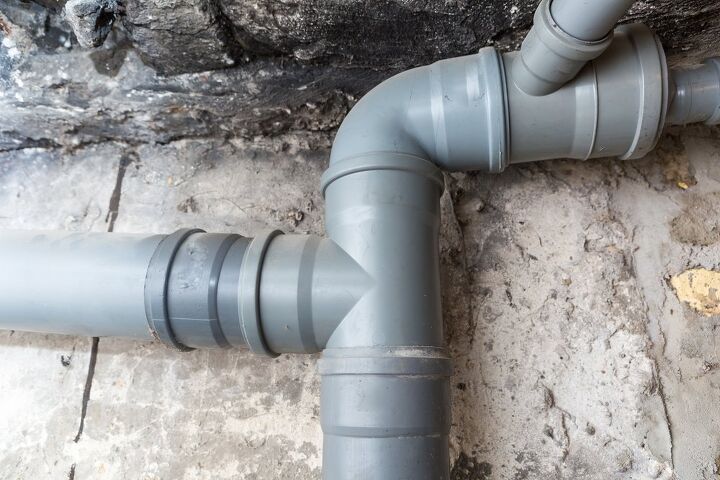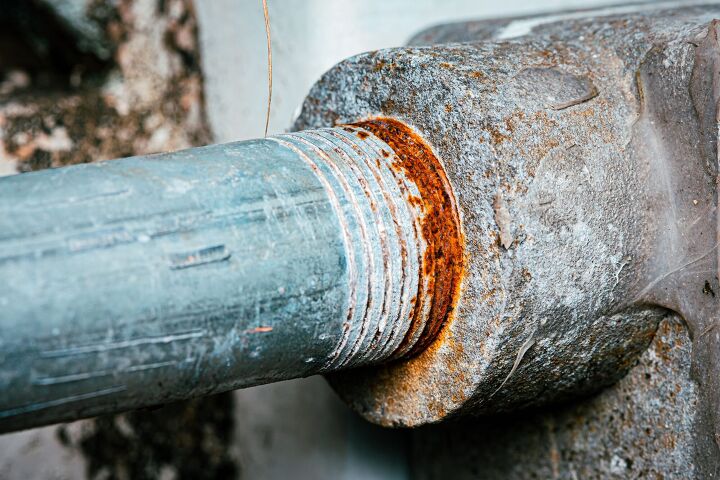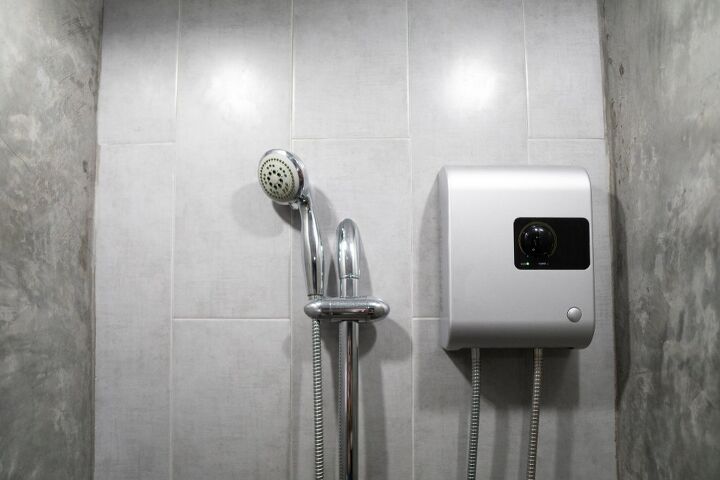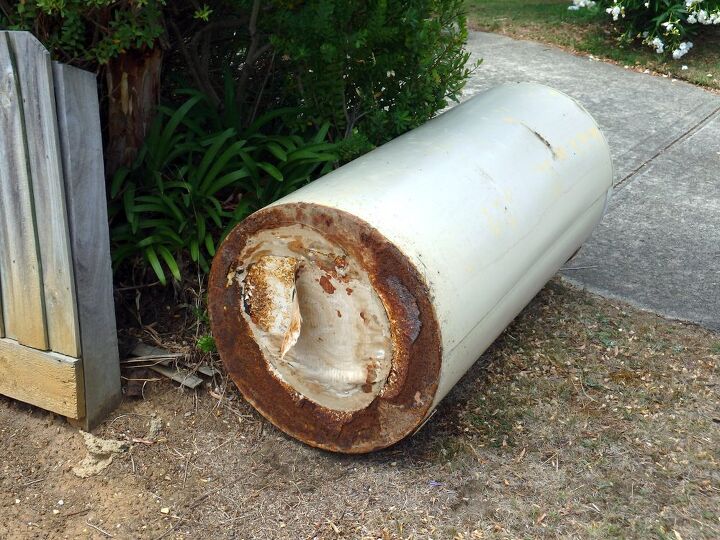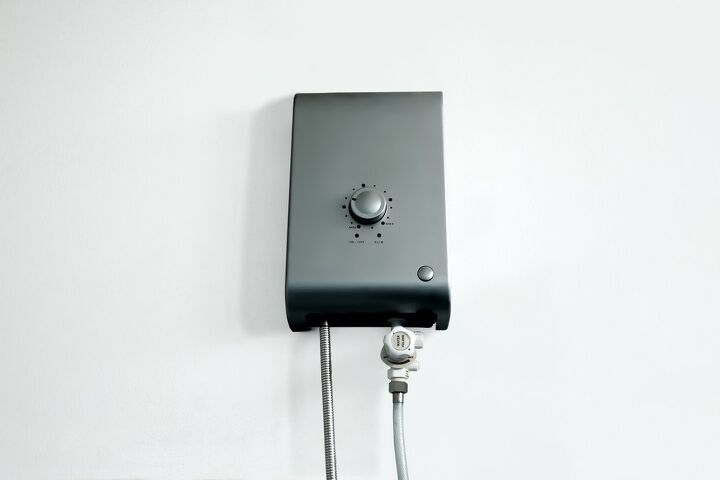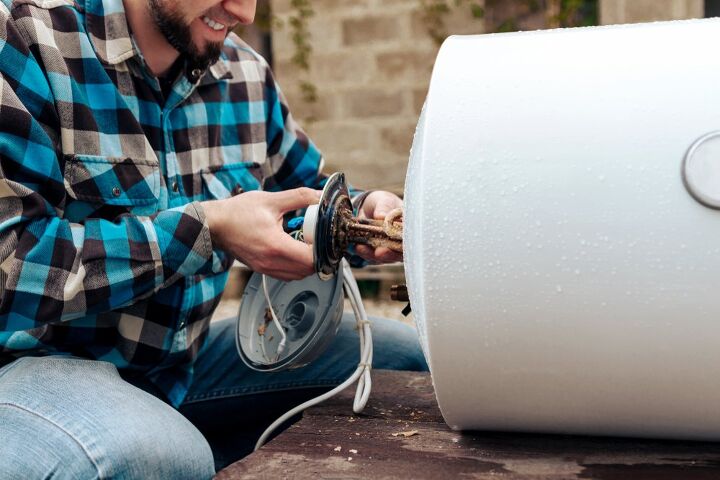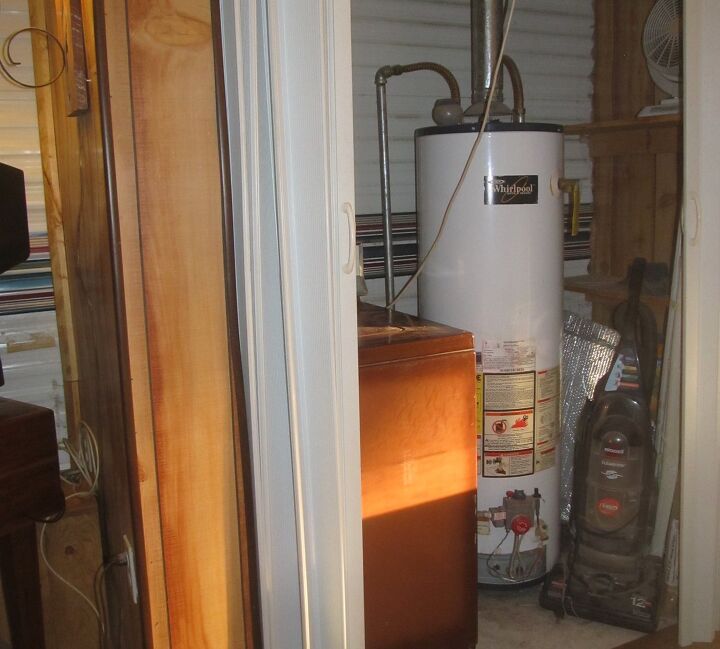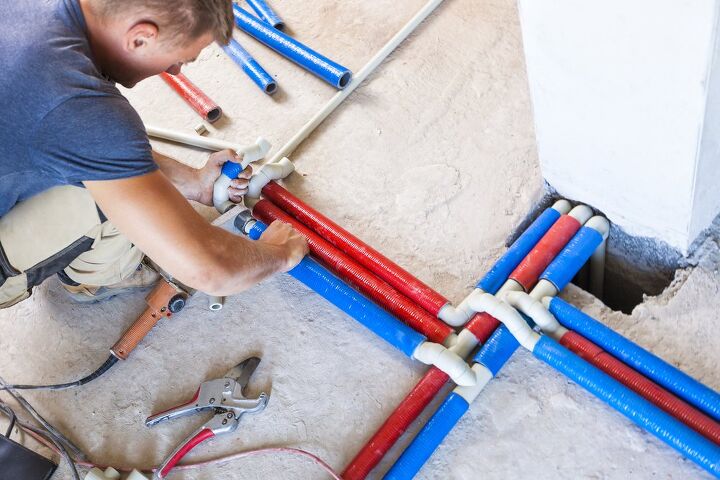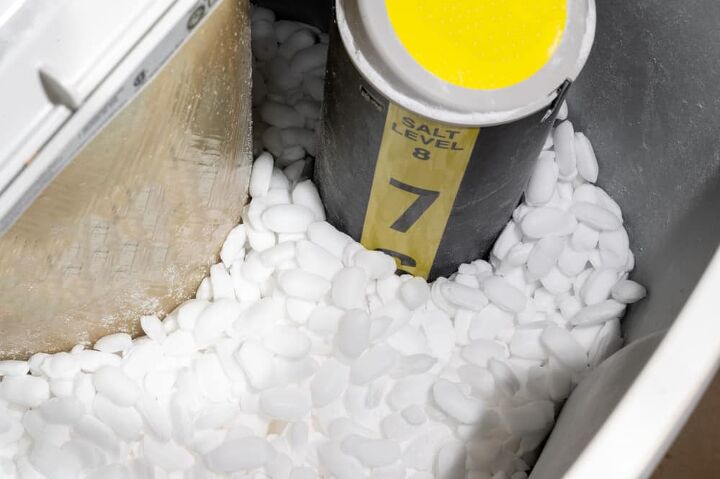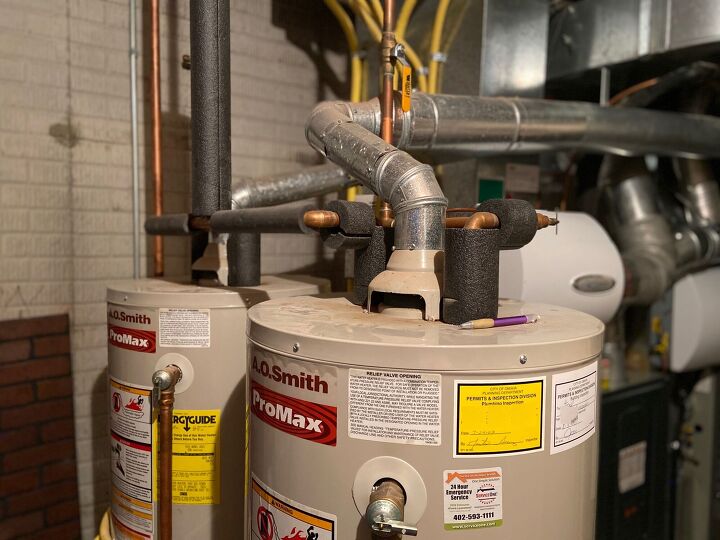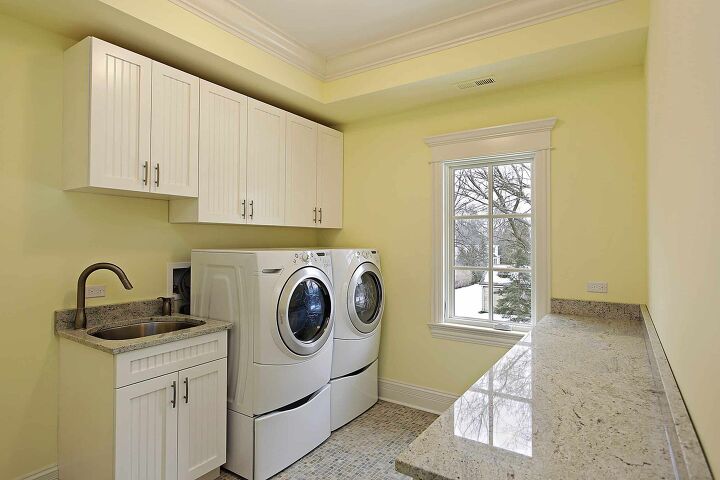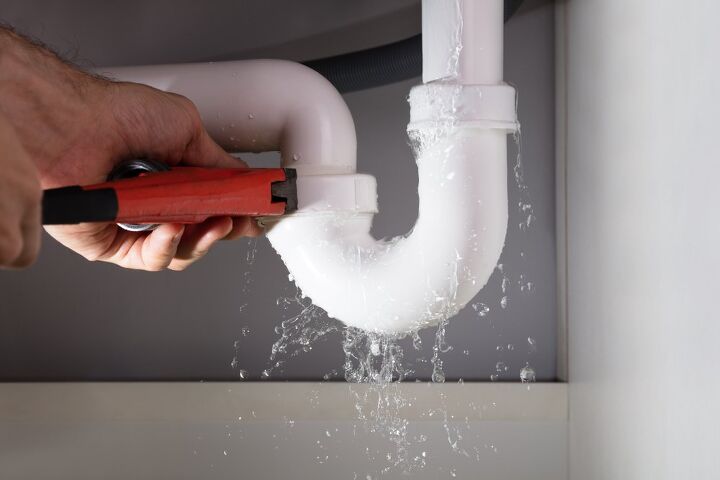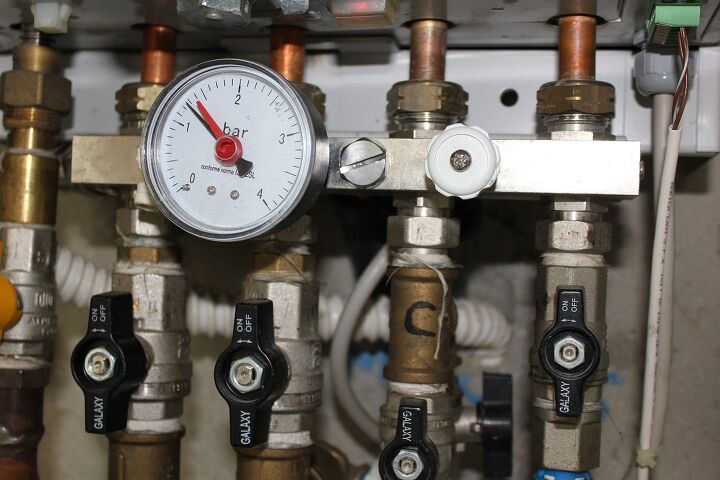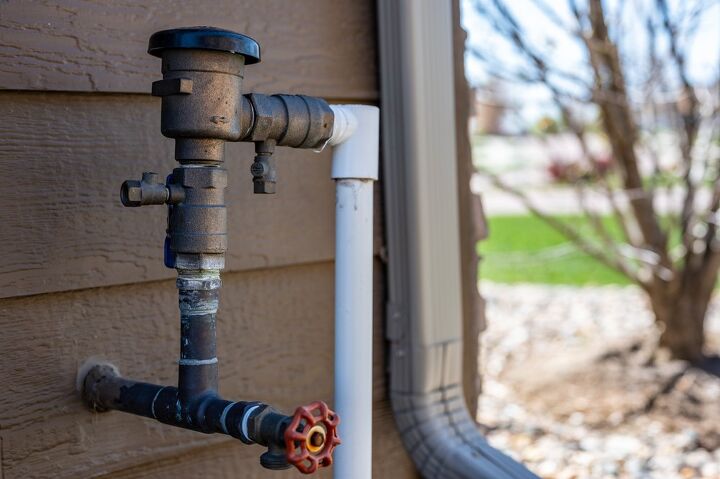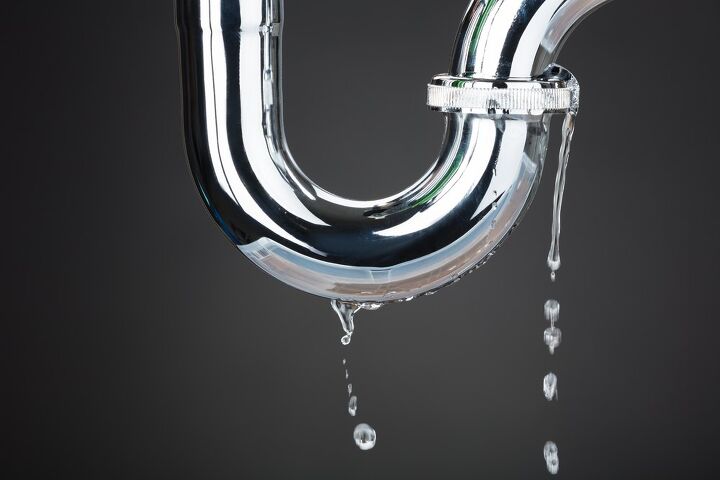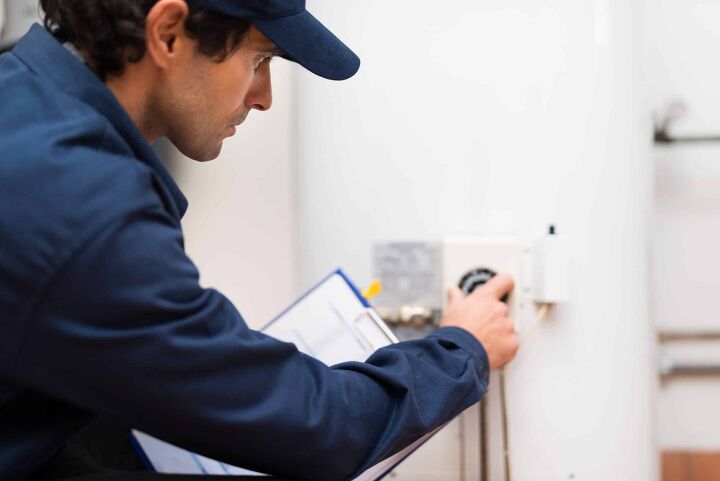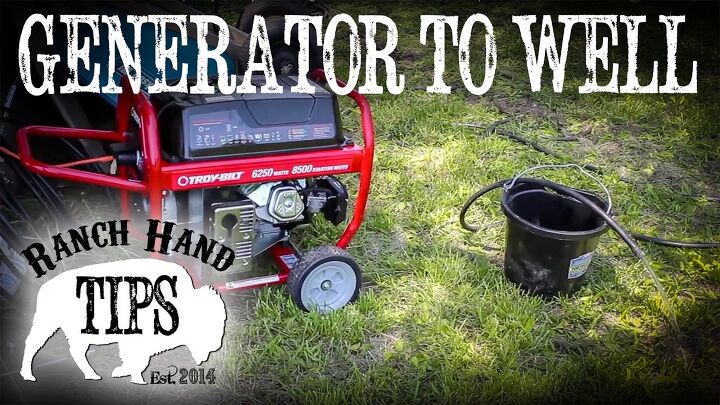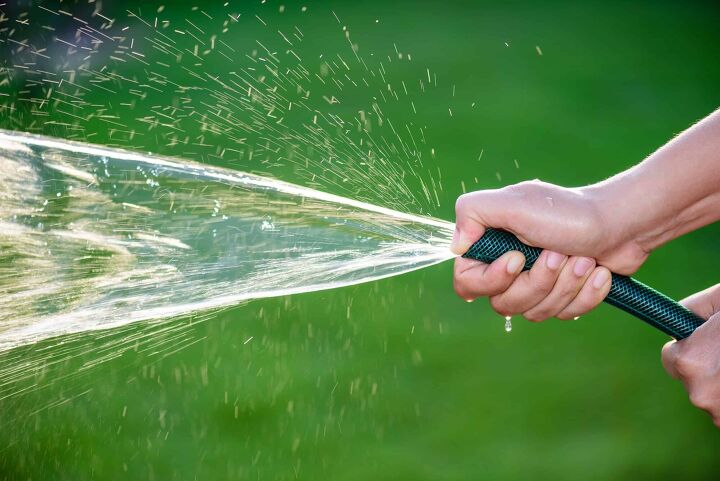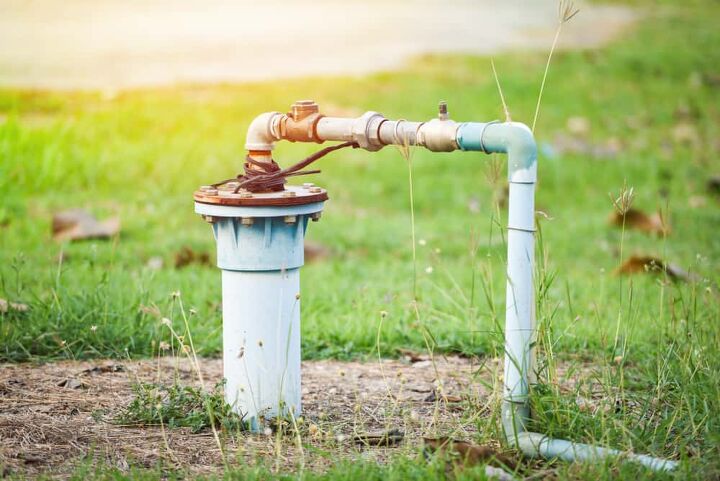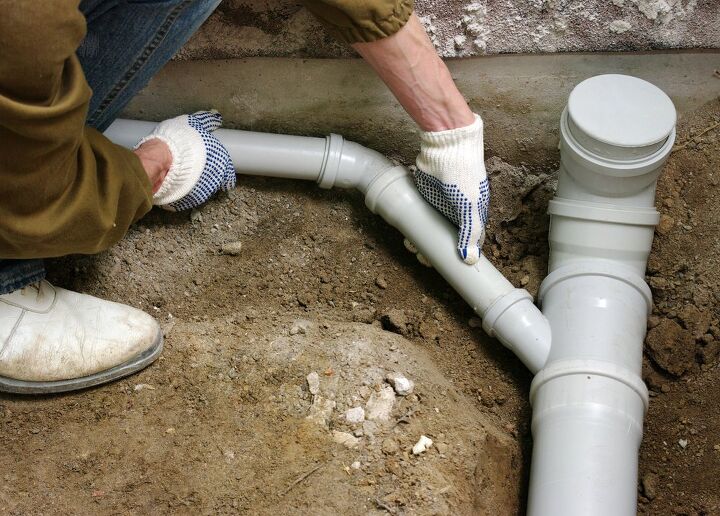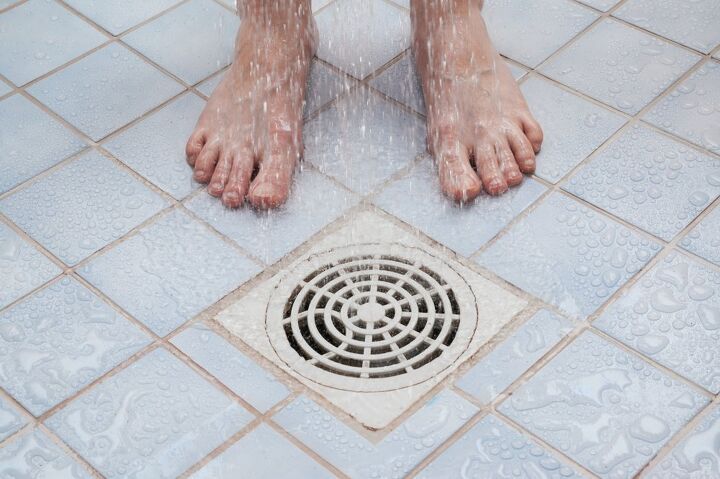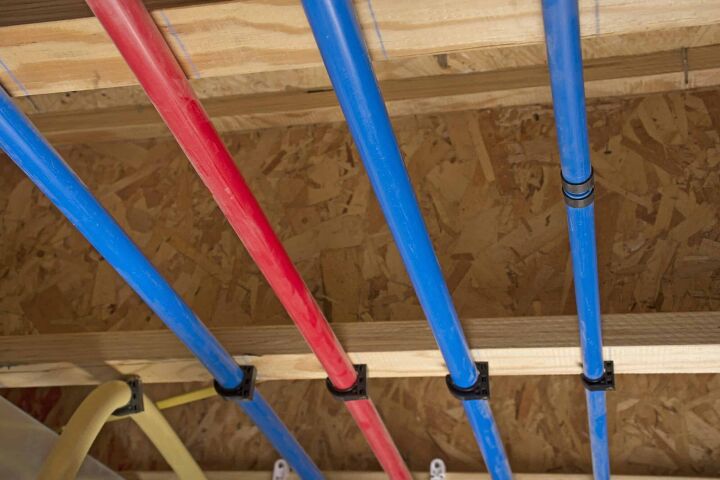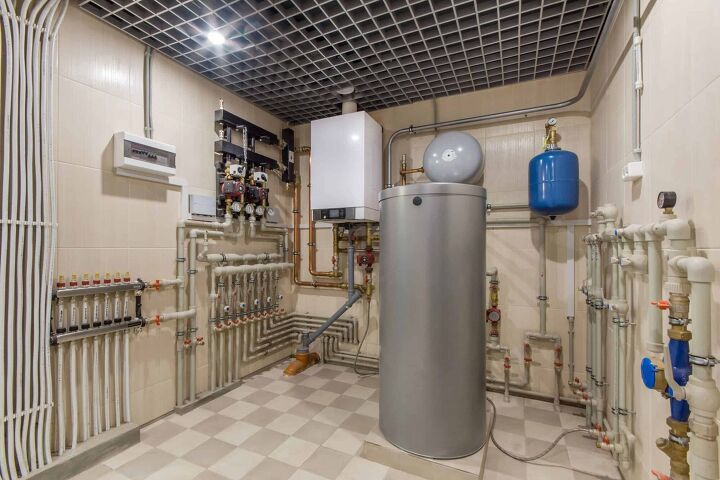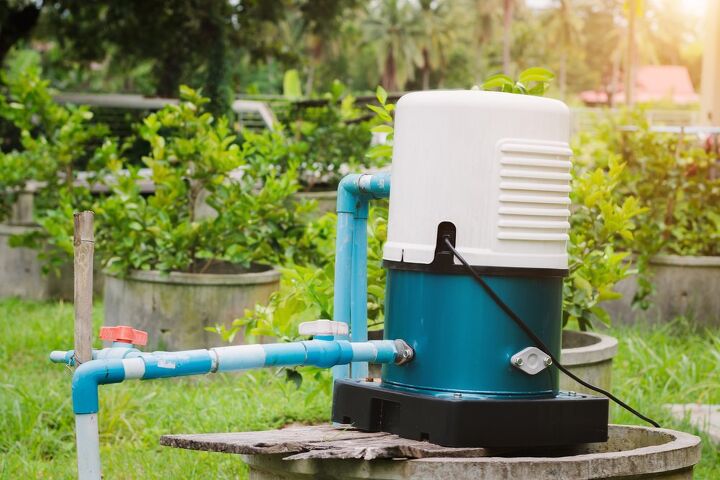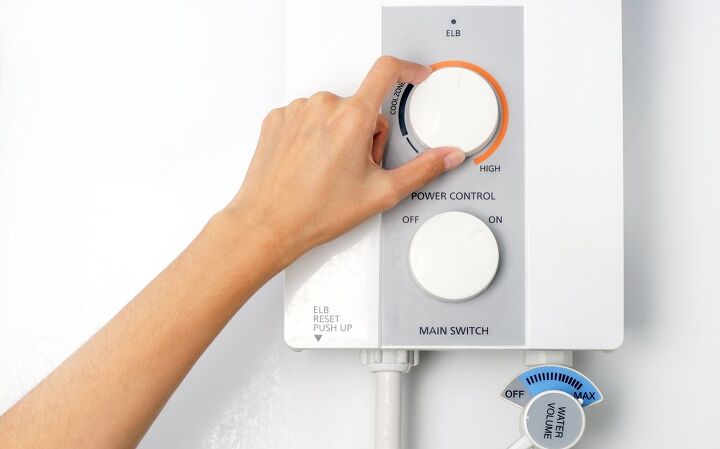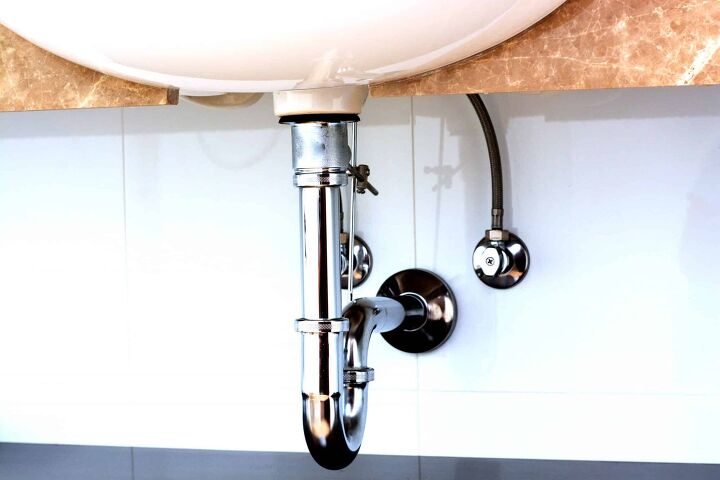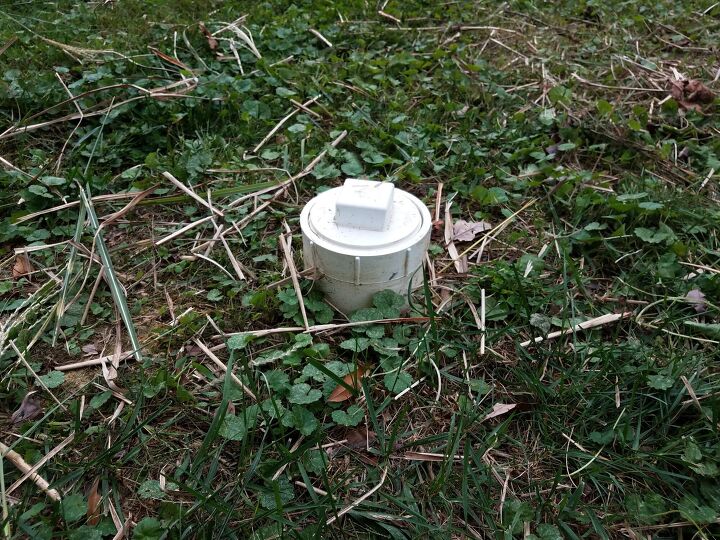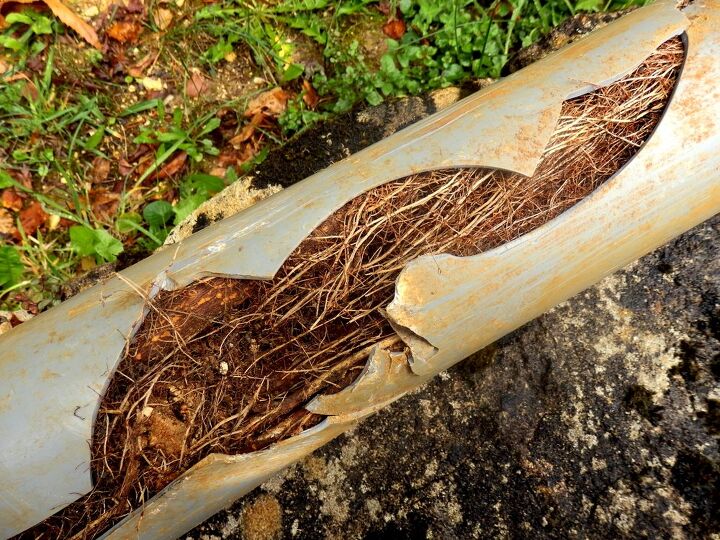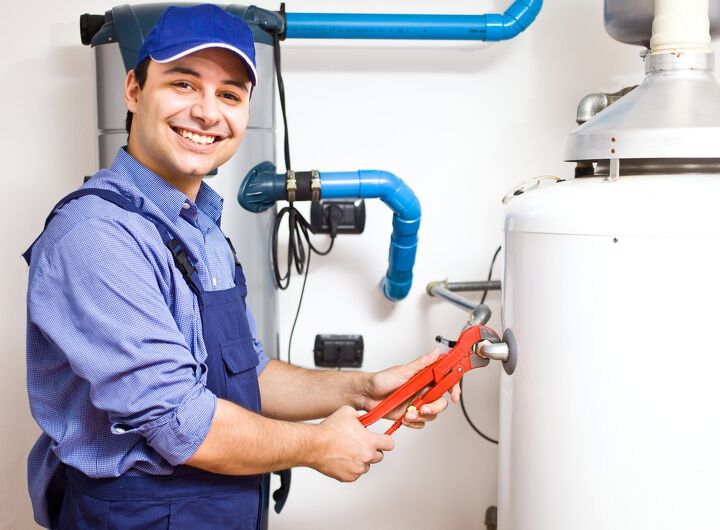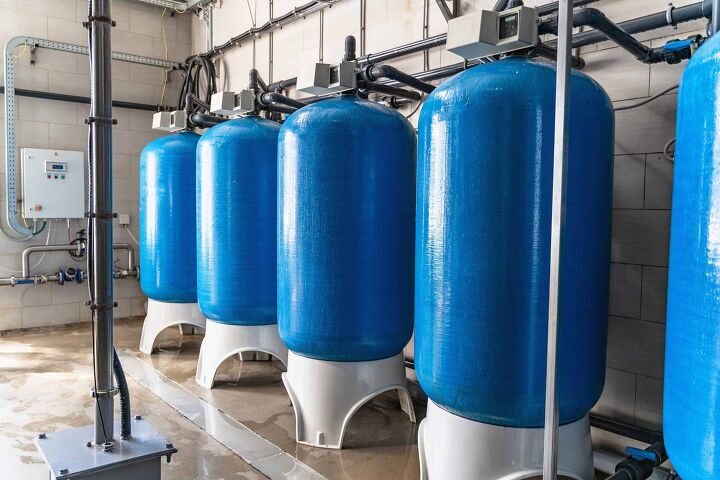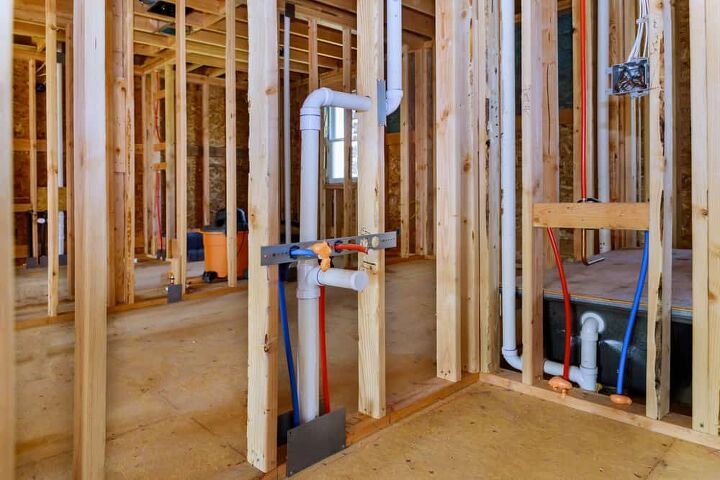Home Services Plumbing
Can You Snake An AC Drain Line? (Find Out Now!)
When your A/C drain line becomes clogged, a plumber’s snake may be the most cost-effective option. With the right type of snake, snaking a drain line is a straightforward task.
What Is A Sewer Tap? (Find Out Now!)
Connecting to the main sewage line from your house is a convenient and modern way to handle wastewater. Not only is it convenient, but it requires very little maintenance to keep a secure connection from your house to the city’s wastewater treatment plant. To secure a strong connection, a common plumbing component called a sewer tap is used.
Water Heater Igniter Won't Spark? (We Have A Fix)
Depending on the water heater you have, it may use an igniter to ignite the gas. When you hold down the pilot switch on a gas heater and click the igniter button repeatedly, a small spark should ignite the pilot. However, if the pilot flame will not light after you click the igniter, you need to verify that a spark is happening inside the pilot.
Why Is My Water Heater Overheating? (Possible Causes & Fixes)
If the water from your faucet is too hot, this is not only uncomfortable but also unsafe. Extremely hot water is dangerous for all members of the family, especially if you have kids. Therefore, address this problem quickly to prevent further damage as the water heater could leak or burst.
Can A Water Heater Freeze? (Find Out Now!)
Problems with water heaters can be stressful because they are an essential part of modern living. Water heaters are dense and durable, but they are still prone to failure which can prove expensive. So, can a water heater freeze?
How To Solder A Copper Pipe With Water In It
Plastic pipes are more prone to cracking up; thus, copper-based tubes are the go-to pipes for plumbing applications owing to their ability to withstand corrosion.
How To Remove A Tub Drain With Broken Crosshairs
Practically every bathtub strainer was originally screwed into place. If you’ve used an antique tub, you’ll notice there weren’t any threads. This is because they plugged with a rubber stopper.
Does Homeowner Insurance Cover Burst Pipes?
Most homeowner insurance providers cover the cost of a burst pipe. However, it’s important to look up whether or not your provider includes that. If not, it’s worth switching to a provider that covers burst pipes, especially if you live in a cold area.
Water Pipes Making Humming Noise? (Possible Causes & Fixes)
If your water pipes are making a humming noise, this could be due to several reasons. In some cases, homeowners describe this strange humming noise sounding like a foghorn, as it usually reverberates.
Why Is My Boiler Making Noise?
Hissing sounds coming from your boiler may sound bizarre, but there is nothing to worry about. Some people refer to it as a “whirring” sound, but a hissing sound doesn’t indicate a problem. Hissing or whirring sounds typically appear when a boiler first turns on.
How To Stop Brass Fittings From Leaking
Leaking fittings and pipes not only lead to the wastage of an essential natural resource, but they can also result in elevated utility bills and presents a hazard in the home.
What Size Gas Line For A Fire Pit? (Find Out Now!)
A magnificent fire pit flame requires two things: enough gas and the proper rigid piping to deliver it. The size of the hard pipe is sometimes overlooked, and the resulting flame might be underwhelming. So, what size of a gas line do you need for the fire pit?
Cost To Install A Shower Valve (Labor & Materials)
Your shower is one of the most important parts of your home. You wouldn’t be able to keep yourself clean without one. That’s why it’s important to prioritize the maintenance of your shower.
J-Trap Vs. P-Trap: What Are The Major Differences?
Talking about plumbing and drains, in particular, involves a host of letter designations. Figuring out what these letter designations mean and how to use them in drain and water plumbing can get confusing? Exactly what are J-Traps and P-Traps?
Did You Buy A Money Pit?
When you hear “money pit,” do you instantly think of the comedy classic starring Tom Hanks and Shelley Long? (If not, it’s worth a peek for a lot of laughs -- or maybe a cautionary tale if you’re house hunting.)
What Is Wet Vent Plumbing? (Find Out Now!)
When people start talking about plumbing, it’s easy to feel like you’re hearing a bunch of gibberish. Flange? Macerating toilet? Yeah, it’s a lot to take in at first, especially when you’re just dipping your toes into the water. (Sorry, had to add a pun!) Wet vent plumbing is one of the lesser-known terms that’s just starting to catch on in parts of the country, but what exactly is it?
What Is The Difference Between Foam Core And Solid Core PVC?
Foam core (or “cellular core”) polyvinyl chloride (PVC) has small air pockets embedded in the composite, whereas solid core PVC is solid plastic. If you run your thumbnail over the end of foam core PVC pipe, you can actually etch it. You can’t do this with solid core.
Water Heater Making Hissing Sounds? (Possible Causes & Fixes)
Water heaters can make all kinds of noises when something is damaged or not running properly. However, if you suddenly start hearing a hissing noise coming from your water heater, you may want to take care of it soon. A hissing sound may not be dangerous to you and your family, but it can eventually damage the water heater.
Pipe Union Vs. Coupling: What Are The Major Differences?
The piping in your home or business will, for the most part, do its job quietly and efficiently. That is so long as it has been properly installed first. There are many aspects to the installation process, part of which is choosing between a pipe coupling or pipe union.
Hot Water Heater Pressure Relief Valve Keeps Opening? (Do This!)
Your hot water heater is perhaps one of the most important things inside your home. Keeping warm water flowing, is essential, for living. If your hot water heater’s pressure relief valve keeps opening, we have some tips that will help you fix it.
How To Increase Water Pressure Without A Pump
While buying a pump is an easy solution to increasing your water pressure, those pumps can be incredibly expensive. For those on a budget, buying a pump may not be an available option. Because of this, we’ve produced a guide on how you can increase water pressure without a pump.
Cost To Drill A Well [Pricing Per Foot & Cost By State]
Whether you’re wanting to save money on your water bill or keep your lawn watered without breaking the bank—drilling a well is an excellent option for you. While you will incur some costs, you will save a lot in the long run. So, how much does it cost to drill a well?
How To Tell If A Sewer Pipe Is Leaking (Here Are 6 Telltale Signs)
Modern plumbing is a wonderful convenience that allows us to live safe and sanitary lives. Many people rely on municipal sewer systems to help remove wastewater cleanly and efficiently from your home. Sewage usually safely travels through the sewer pipe connecting your home to the municipal waste plant. However, sometimes a leak can occur within your sewer pipe, leading to major plumbing complications.
Replacing Galvanized Pipes With PEX. Is It Worth It?
Galvanized pipes have many ways of telling you they need replacing. Perhaps they make weird noises, or maybe you notice decreased water pressure due to plaque buildup. You might even notice a slight discoloration in the water.
What Is A Point-Of-Use Water Heater? (Find Out Now!)
Having hot water in a home is essential, and this is why most homeowners go out of their way to ensure they have reliable water heating systems. One way you can ensure you always have hot water at home is by installing complementary point-of-use water heaters.
Can You Transport A Water Heater On Its Side? (Find Out Now!)
A water heater helps to heat the water in your house, so you can shower with warm water or use hot water to clean your dishes. Although a water heater is a major appliance, these units do not have a long lifespan, with many only lasting about ten years. Replacing a water heater is a simple job, but moving your new water heater is the hardest part of the entire water heater installation process.
Condensing Vs. Non-Condensing Tankless Water Heaters
If you’re getting rid of your 50-gallon old-fashioned water heater and choosing to go with a tankless heater instead, congratulations! You’ll be saving a lot of space.
Can A Bad Water Heater Raise Your Water Bill? (Find Out Now!)
In this crazy modern day, it seems like almost every single necessity is skyrocketing in price. This includes water. With water beginning to get scarce in certain parts of the country, it makes sense to take a look at ways to trim your water bill. One of the most common rumors mentioned among home improvement circles is that a bad water heater can cause a spike in your water bill. Are you wondering if the rumor is true? We got some news for you…
How To Dissolve Hair In The Shower Drain
Hair will always land in your shower drain unless you use a hair catcher. It’s an annoying part of being a homeowner or renter, especially when clogs form. That’s why you’re not alone if you’ve ever wondered how to dissolve hair in the shower drain.
Can I Put A Regular Hot Water Heater In A Mobile Home?
When I first started doing home improvement work, I was shocked to find out how many seemingly universal household parts don’t work with mobile homes. I mean, they’re supposed to be universal, right?! We all know that most heaters and toilet systems may need to have modifications in mobile homes. When it comes to matters like hot water heaters, things can get dicey.
Why Is My Tap Water Rusty?
Plumbing fixtures are prone to rust, as they’re typically made of metal and contain water. This creates the perfect storm for rust to form after years of heavy use. That’s especially true if the pipes in your home have been there since long before you moved in.
How To Remove A PEX Crimp Ring (Do This!)
Plumbing connections inside the home can be secured in a variety of ways. If the connections inside your home are relatively new, you may find that various kinds of PEX fittings have been used. That’s due to PEX emerging as a popular alternative in recent years.
What To Expect When Repiping A House (We Have The Answer)
Your home is comprised of many different components, all of which play an essential role in how it functions. One of the most critical parts of your home that often goes unnoticed is the plumbing system. The pipes that make up a plumbing system go bad and need to be repiped from time to time.
Why Does My Neighborhood Smell Like Sulfur?
It’s hard to miss the smell of sulfur; the scent is quite distinct and unpleasant. The smell is even more unpleasant when it’s in your neighborhood and even your home. So, why does my neighborhood smell like sulfur?
How To Install A Water Softener In A Pre-Plumbed House (Do This!)
Regardless of how it gets into our home, we source the water that we use to drink and bathe through groundwater. The thing is that the water picks up soluble bits of the ground as it passes through and into our pipes.
Can You Put A Power Vent On Any Water Heater? (Find Out Now!)
When people think about water heater upgrades, they tend to want all the bells and whistles. A well-running water heater means lower bills, better safety standards as well as piping hot water. What could be better than a well-ventilated water heater, right? If you are a home improvement fan, you probably are wondering what you can do. Is it possible to put a power vent on any water heater you could have?
How To Install A Utility Sink Next To A Washing Machine
A utility sink can make for a very useful addition to a washroom, basement, or garage. It offers an additional drainage capability, cleaning space so as to not ruin higher-end sinks, and a world of other possibilities.
Why Does My Plumbing Sound Like A Foghorn?
The plumbing system in your home is a complex one full of many different components. If you start to hear strange noises similar to a foghorn coming from your plumbing, there’s reason to be concerned. You should explore all of your options and try to get to the bottom of the issue immediately.
Mobile Home Water Heater Vs. Regular Heater: What Are The Differences?
Imagine a situation where you just installed a water heater, but you found a mobile home that is much more in your price range. You don’t want to lose the value you put into this water heater, but you also can’t use it in your mobile home. When it comes to a mobile home water heater vs. regular heater, the two have significant differences.
Backflow Preventer Vs. Check Valve: What Are The Major Differences?
Modern-day plumbing is a wonderful benefit that many people around the world have become accustomed to. Access to clean and reliable drinking water is a beautiful privilege, mainly due to backflow prevention systems. Using various valves, like a check valve or a backflow preventer, can keep potentially contaminated water away from potable drinking water, keeping you and your family safe.
Why Does It Sound Like Water Is Constantly Running?
Your plumbing pipes travel through your home, including behind your walls, above your ceiling, and under your floors. You’re literally surrounded by water and drain pipes at all times, no matter where you are in your house. As a result, you might notice the sound of water running nonstop but can’t pinpoint where it’s coming from.
Water Heater Relocation Cost? (Here Are the Details)
Is your water heater in the middle of your bathroom or kitchen? Maybe it is in a hall closet or taking up space in the center of the basement. The only solution you may have is to move it. But this can be a costly endeavor when paying someone else to do it for you.
How Many Watts Does A Well Pump Use? (Find Out Now!)
If you get your water from a well, you probably already know that when your power goes out, your water does not work either. As if it isn’t bad enough to have no electricity, now you have no water either. You should consider getting a generator for the well pump then.
Can Someone Tap Into Your Water Line?
Imagine the following scenario: you are known for conserving water, and for as long as you lived in town, your water bills were $30 or so. Recently, a new family moved in. They have a pool, sprinklers, and everything else watery under the sun. The next month, you notice that your water bill shot up to $900. You look at your neighbors, who don’t make eye contact with you anymore. Could it be them?
How Much Does It Cost To Replace A Well Pump Foot Valve?
If you live outside of a city, there’s a good chance you get your water from a well. As your own personal water supply, you will not need to pay for this utility. However, there are maintenance costs associated with getting your water from a well.
Green Sewer Pipe Vs. White: What Are The Major Differences?
Modern plumbing is as advanced as it has ever been, and that makes it hard to wrap your head around. The color of a particular pipe may simply seem cosmetic, but it signifies its purpose and certain properties. So, what is the difference between green and white sewer pipes?
Where Does Shower Water Go?
When people take a shower and then use sinks and toilet facilities at home, the water appears to vanish, never to be seen again. If you’re wondering where that used shower water goes and whether it will be discarded or recirculated, you’ll be relieved to know that the majority of the water is reused and recycled. The forms of treatment are straightforward but fascinating.
How To Protect PEX Pipe From UV Light (Here Are the Details)
Copper pipe has been the go-to for plumbing because of its many great qualities. Then about 25 years ago PEX pipe started to become more popular in the US, thanks to its ability to withstand pressures and temperature changes in domestic hot and cold systems.
Can A Boiler Explode? (Here Are Some Telltale Signs)
Boilers play an important role in any home. These units work by heating water and the house with steam. The steam travels through the house in pipes and radiators. Boilers are expensive to install, but have a long lifespan and are energy efficient.
How Much Does A Well Pump Cost?
Wells are a convenience and a staple in American homes for centuries now. The difference between the wells of days past and wells of today is the sophisticated simplicity of great well pumps. If you have a working well, you need a well pump, but what will it cost you?
Water Heater Smells Like Gas? (Fix It Now!)
If you wake up in the morning and the first thing you smell is gas, that would automatically tell you something is wrong. Leaking gas is inevitably a serious situation that you need to handle as soon as possible. It is never ideal to stall when it comes to gas leaks.
How Often Should I Flush A Water Heater?
You should flush your water heater at least once per year. However, many people flush their water heaters every 6 months. That’s especially a good idea if your home has hard water. Your water heater will quickly become full of sediment if your water supply has a high mineral content.
Should I Turn Off My Tankless Water Heater If The Water Is Off?
If you take a look at most of our plumbing guides, you’ll notice that one of the first instructions we add involves shutting off the water. It’s simple, right? Well, sometimes you might want to think twice. You might want to know if your water heater needs to be shut off too. This is doubly true if you own a tankless system. After all, it’s important to do it all the right way, right?
How To Connect A 1 -Inch Tailpiece To A 1 -Inch Drain
If you are trying to connect a 1 ¼-inch tailpiece to a 1 ½- inch drain, you are most likely doing so because you need a longer tailpiece. The standard tailpieces that come with the drains sold at most hardware and big-box stores tend to be shorter than you may need. That being said, making the switch is not a difficult thing to do.
Eight Signs Your Water Softener Is Not Working
Water softeners help millions of people deal with their annoying hard water problem. However, water softeners aren’t always as reliable as one may hope. There are several signs that your water softener is not working.
How Much Does Sewer Cleanout Installation Cost?
A sewer cleanout isn’t something that everyone is familiar with. In fact, many homeowners are unfamiliar with what a sewer cleanout is, what it does, where it’s located on your property, and how much it costs to install one. Oftentimes, a sewer cleanout only becomes a relevant topic when something goes wrong.
Can Tree Roots Penetrate A PVC Pipe? (Find Out Now!)
PVC pipes are an excellent choice whether you’re planning any kind of home DIY project or you’re a professional contractor looking to do a job well done within a budget. PVC is remarkably sturdy, yet it’s far cheaper than many alternatives, such as galvanized steel or copper.
Hot Water Heater Not Filling Up? (Possible Causes & Fixes)
Hot water is something that all homes and most businesses need access to these days, and this is the main reason why hot water heaters are indispensable fixtures to both home and business owners. Just think about how many appliances depend on hot water in a home: the dishwasher, the washing machine, the shower, the kitchen and the bathroom sinks.
How Does A Bladderless Pressure Tank Work?
Water supply is not always plentiful in all parts of the country. In some places, service is unreliable and there’s a chance you’ll be greeted by a lack of running water in the morning.
Is Inch PEX Pipe Big Enough For A Shower? (Find Out Now!)
Whether renovating a current shower or building a new one entirely, it is important to ensure that the water wiping is up to proper standards. That means using the right materials for piping water into your bathroom.



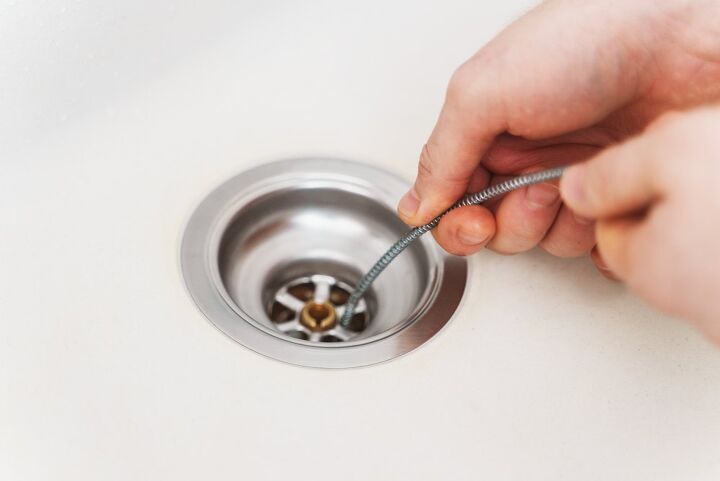
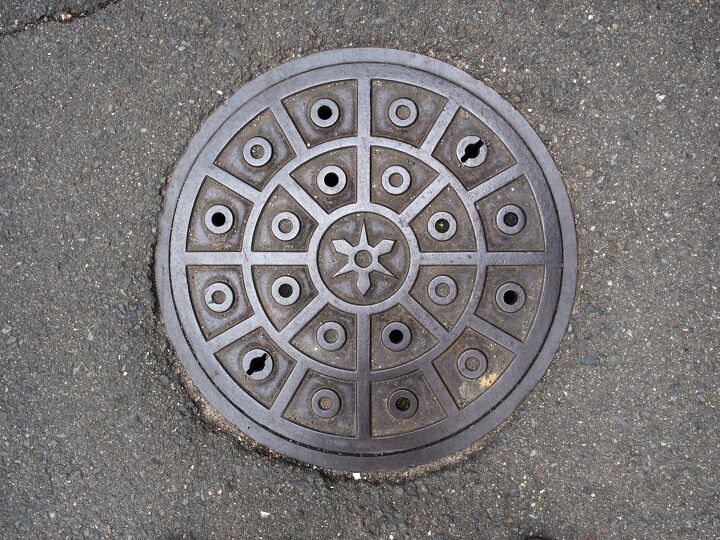
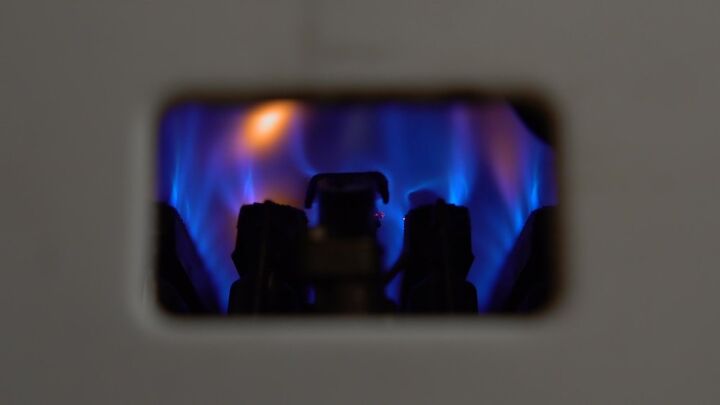
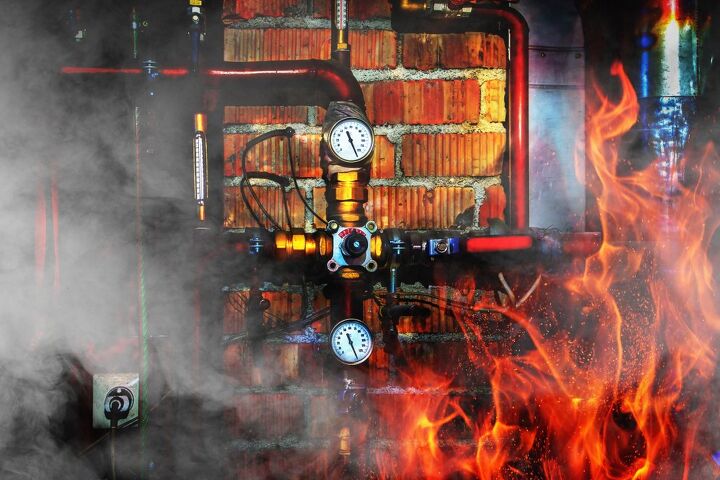
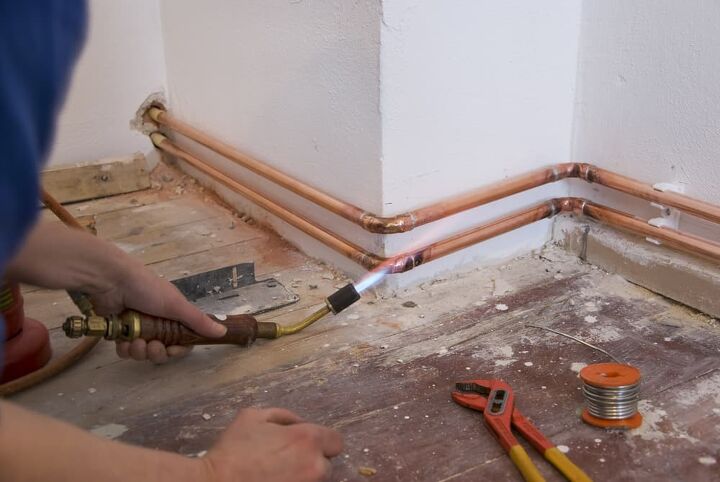
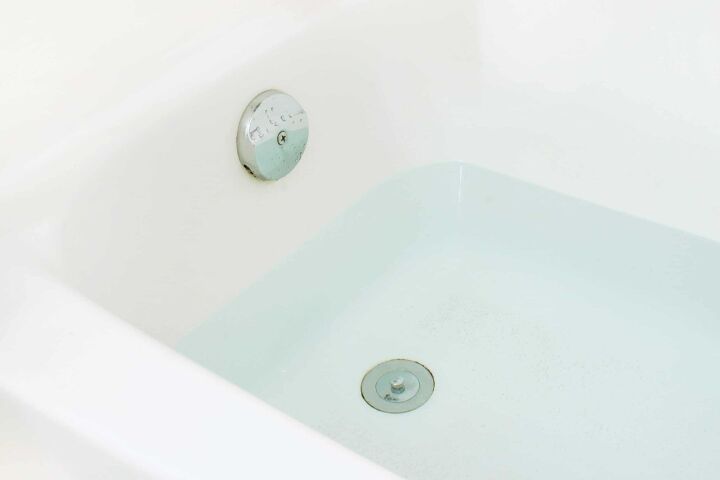

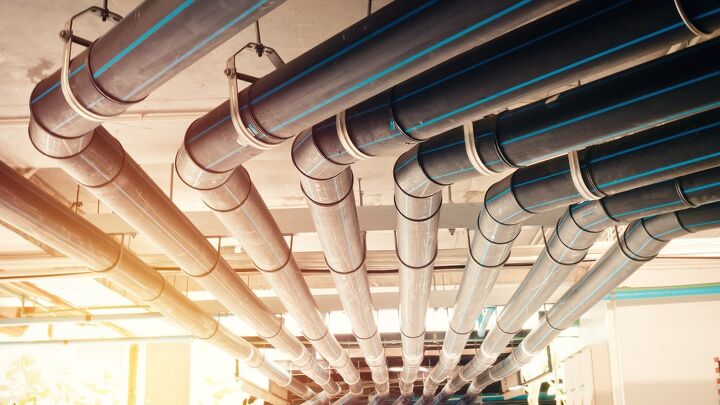

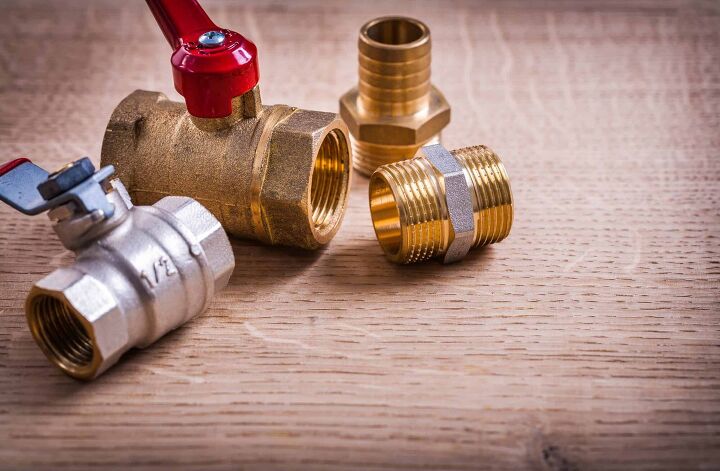
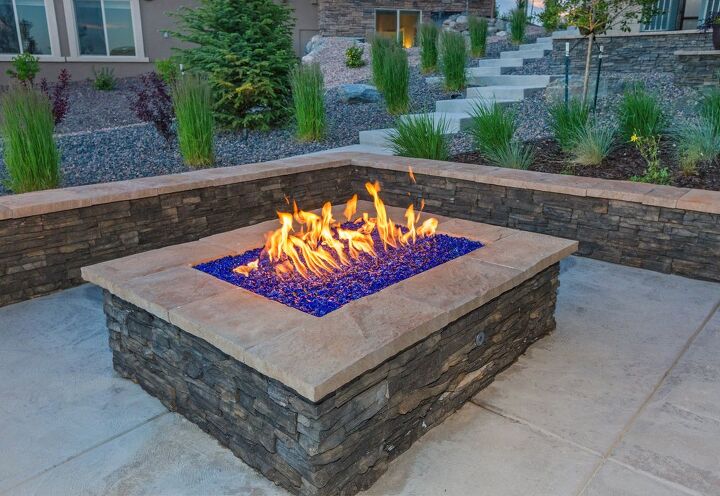
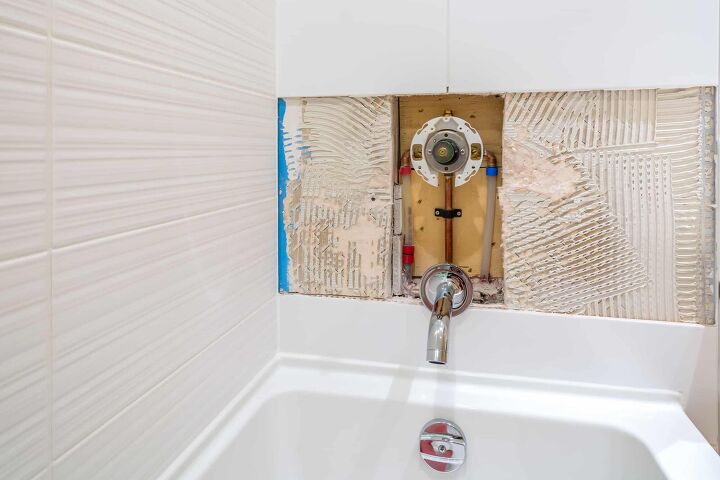
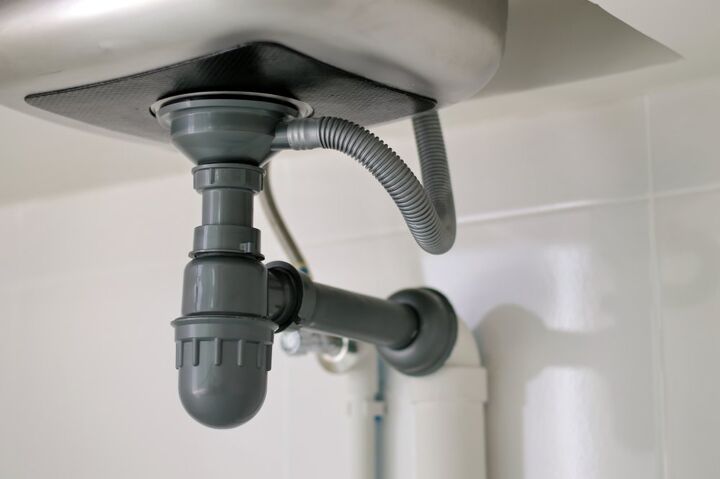
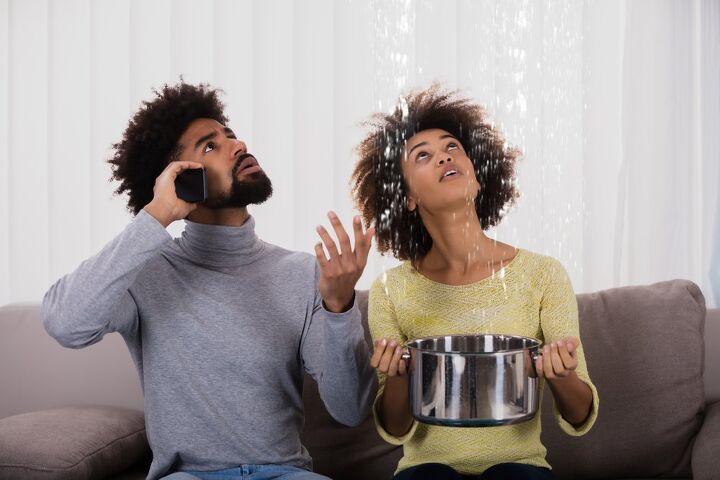
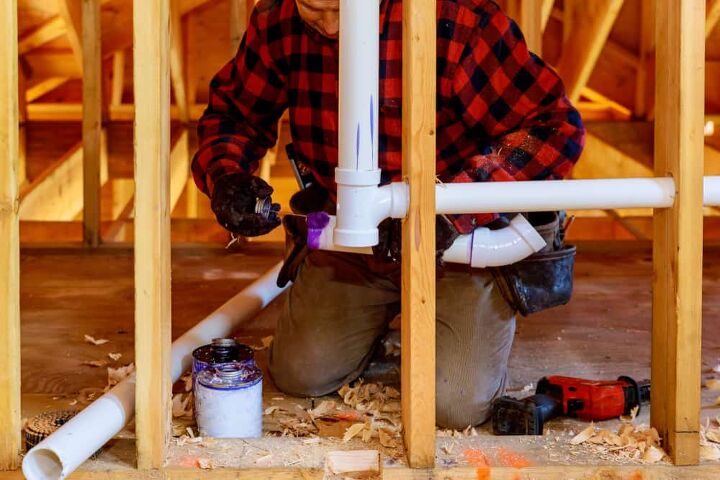
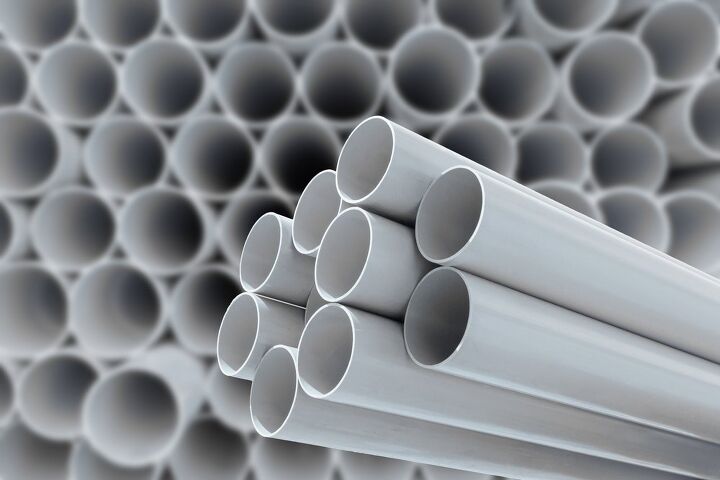
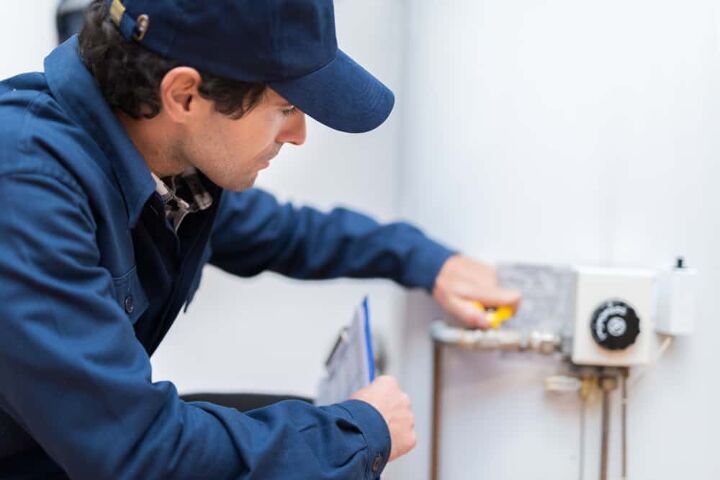

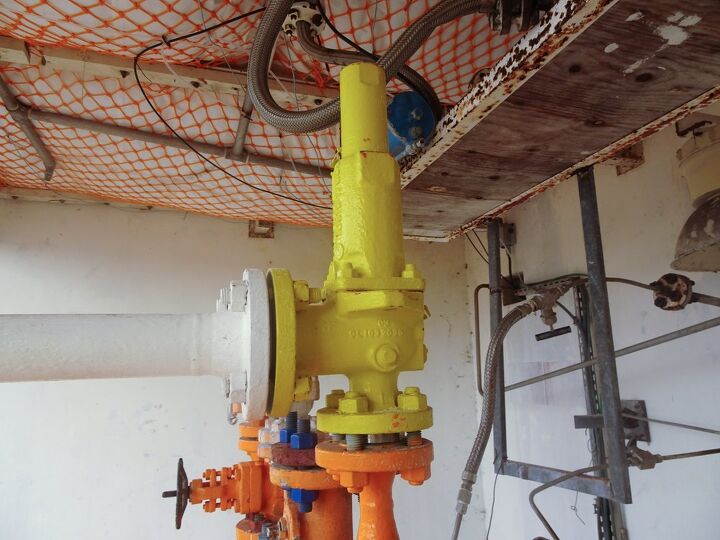
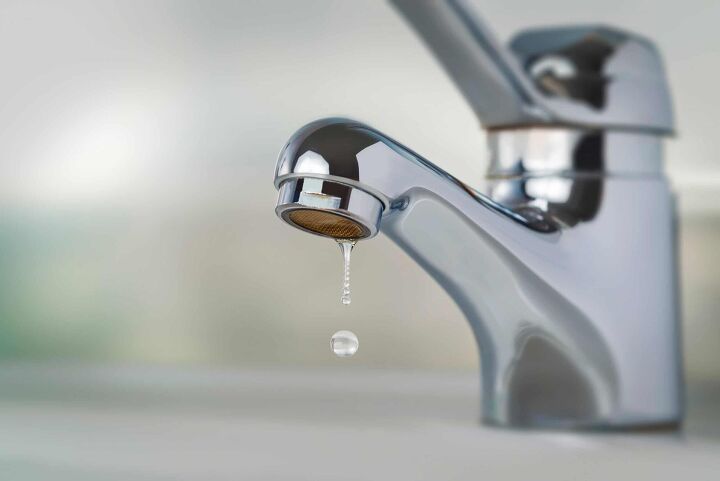
![Cost To Drill A Well [Pricing Per Foot & Cost By State]](https://cdn-fastly.upgradedhome.com/media/2023/07/31/9074980/cost-to-drill-a-well-pricing-per-foot-cost-by-state.jpg?size=720x845&nocrop=1)
